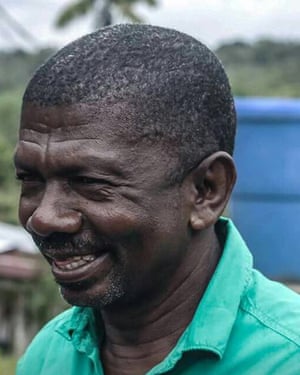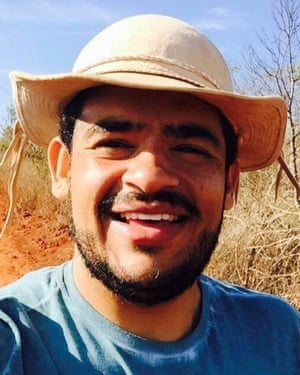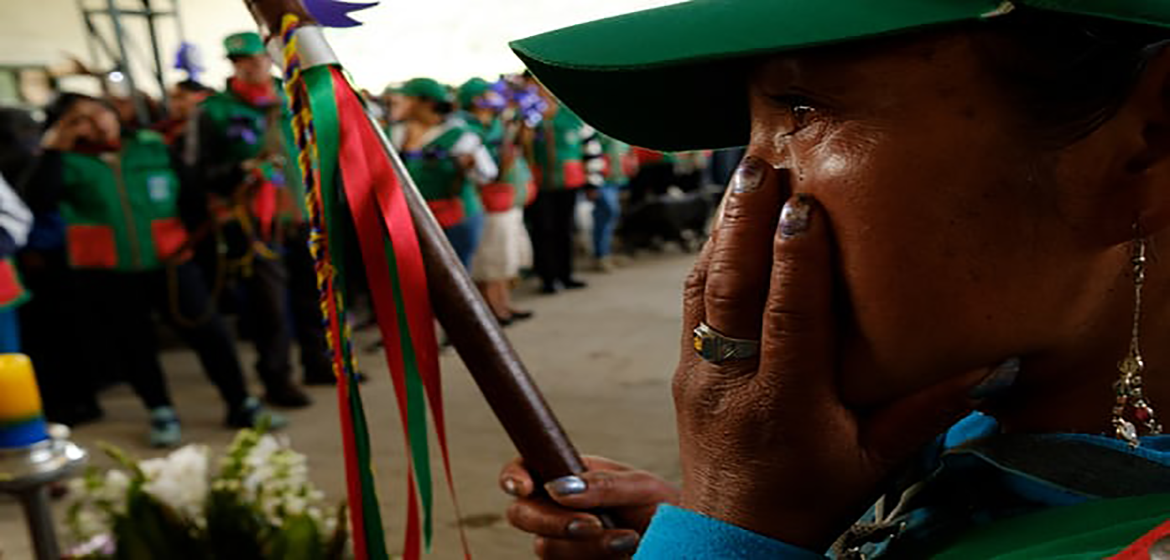By Sebastian Ordoñez Muñoz
Two more defenders in Latin America have lost their lives challenging their country’s economic growth model which prizes profit at all cost
As the Guardian and Global Witness revealed that in 2017, War on Want learned of two more killings through our Latin American partner organisations.
On 24 January, Márcio “Marcinho” Matos, involved in the fight for rights of landless peasants in Bahia in north-east Brazil, Three days later, Temístocles “don Temis” Machado, a prominent figure in the struggle of Afro-Colombian communities across the Colombian Pacific, in the Isla de Paz community.
Machado, of the Black Communities’ Process (PCN) and Matos of the Landless Workers’ Movement (MST) were tireless land defenders
These killings are designed to silence and break the frontlines of the struggles against corporate power, catastrophic climate change and the unlimited extraction of the world’s natural resources. The violent tactics aim to bypass local communities whose lives and livelihoods stand in the way of corporations looking to profit from exporting primary materials for global markets, whatever the human and environmental cost.

In , despite the historic peace agreement between the state and the leftwing Farc guerrillas, the social and armed conflict is intensifying. Machado lived in Buenaventura, on Colombia’s Pacific coast, a predominantly Afro-Colombian region with diverse ecosystems and rural and urban territories intersect.
Buenaventura is also home to the country’s largest port, through which about 75% of imports and exports pass, generating huge corporate profits and much of the country’s tax revenue. However, the wealth that passes through the city makes for an uncomfortable contrast with the city’s appalling social realities. a place where free trade presides over mass murder.
Last year, Machadoa three-week civic strike that brought Buenaventura to a grinding halt. The strike was a historic moment for the people of a region long mired in the legacies of slavery, poverty and racism. It mobilised more than 150,000 people in opposition to the government’s persistent neglect of its Afro-descendent population to the rallying cry “to live with dignity”.
In Brazil, a never-ending corruption scandal has unlocked the worst political crisis the country has seen since its transition to democracy. As it enters an election year, the country’s growing political instability is reflected in the of the chauvinist presidential candidate Jair Bolsonaro, a supporter of the dictatorship that ruled Brazil from 1964 to 1985.
His rise to power has been paved by : the military, ultra-conservative evangelicals and the landowning elites behind Brazil’s industrial agriculture. This constellation of vested interests makes for a dangerous cocktail, leaving any who stand up to these industries particularly vulnerable.
Efforts to undermine land rights against indigenous peoples and peasant workers, a rollback of safeguards for the Amazon rainforest and definitive cuts to the institution tasked with protecting the rights of indigenous people. Brazil continues to be the most dangerous country, not only for environmental defenders – but .

In this context, the MST – a 1.5-million-member movement – is one of the strongest social movements in , campaigning against the industrial export agriculture model that excludes peasants and drives rising inequality and environmental degradation. Matos, who organised landless and impoverished farmers to realise their human rights, embodied this collective resistance.
Many of the world’s largest extractive companies are registered in the UK and conduct their business through London, based on free trade agreements with numerous countries in the global south, including Colombia and Brazil.
These industries are also heavily financed by UK banks, pension funds and insurance companies. Many of the key actors benefit from close and longstanding connections with the UK government, , acting as an extra lobbying arm. It is this structure which lies at the heart of the threats to environmental and human rights defenders around the world.
Rather than looking to a future of increased profit-driven extraction, we need to challenge – as these defenders did – the economic growth model that drives needless resource speculation, inequality, injustice, forced migration and climate change.
This means naming not just those who are killed but the corporations they were confronting and the governments which support them. It means making perpetrators accountable at every level. Above all, it means listening to the voices of those defenders left behind to continue the fight at all costs for their lands, livelihoods and culture. For every land and human rights defender murdered, another steps up, ready to continue.
The murder of these two men was an attempt to assassinate communities who fight for their rights. It is a part of a perverse strategy that tries to put out the fire at the heart of the social struggles they led. To honour their memory, we must extend our active solidarity to their communities, amplifying their calls for the justice they died for.
Source:
Related to SDG 10: Reduced inequalities and SDG 16: Peace, justice and strong institutions



